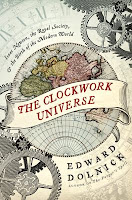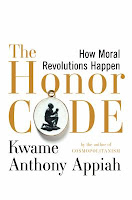Preview Shelf by Janice Clauser
 Library News and Notable New Books
Library News and Notable New BooksBooks to Consider for Memorial Day Reading - Happy Memorial Day, Indiana. Two new books at the Crawfordsville Library discuss current United States challenges. In "American Empire before the Fall" Bruce Fein cites our birth as a Republic, how it has changed, and how it can be regained. "The Rights of the People" by David Shippler discusses how our search for safety invades our liberties. "The Ruling Class:
 How They Corrupted America and What We Can Do About It" by Angelo Codevilla introduces bipartisan political elites he says run America, thinking they know what's best for the rest of us; he praises the newfound popularity of quoting the Constitution and new activities by political parties asserting self-rule and the freedoms so hard-sought in America's founding. Jeffrey Gitomer's "Little Book of Leadership" offers "the 12.5 strengths of responsible, reliable, remarkable leaders that create results, rewards, and resilience, a compact manual practical for any reader."
How They Corrupted America and What We Can Do About It" by Angelo Codevilla introduces bipartisan political elites he says run America, thinking they know what's best for the rest of us; he praises the newfound popularity of quoting the Constitution and new activities by political parties asserting self-rule and the freedoms so hard-sought in America's founding. Jeffrey Gitomer's "Little Book of Leadership" offers "the 12.5 strengths of responsible, reliable, remarkable leaders that create results, rewards, and resilience, a compact manual practical for any reader."
"Making Jack Falcone" is Joaquin Garcia's story as one of few FBI agents dedicated solely to undercover work. He used a series of aliases to shadow the world of La Cosa Nostra. "A Rope and A Prayer" by David Rohde is based on his New York Times series "Held by the Taliban." In November 2008 he and two others traveled to meet a Taliban commander outside Kabul; the interview was a trap, and kidnapped by militants they were taken deep into the tribal areas of Pakistan, where for seven
 months they saw many strongholds as the abductors avoided American drone attacks. The memoir describes many sides of our involvement in Afghanistan.
months they saw many strongholds as the abductors avoided American drone attacks. The memoir describes many sides of our involvement in Afghanistan.The novel "Chasing Fire" by Nora Roberts delves into the world of the Missoula smoke jumpers, elite firefighters who thrive on danger and wouldn't know how to live life if it weren't on the edge. Kurt Vonnegut's "While Mortals Sleep" is previously unpublished short fiction recalling the unique landscape of factories, trailers, and
 bars, and characters with dreams and fears of the indifferent world. "The Collected Stories of Deborah Eisenberg" is a work lauded by The MacArthur Foundation for her "exquisitely distilled stories, a distinctive portrait of contemporary American life." "A Field Guide to the North American Family" is an "illustrated fiction" from Garth Hallberg that actually looks and reads like a field guide, creative and intriguing. Alan Orloff's "Killer Routine" offers us a comedian who survived a tragic auto accident that claimed the life of his fiancee, and who subsequently must help her
bars, and characters with dreams and fears of the indifferent world. "The Collected Stories of Deborah Eisenberg" is a work lauded by The MacArthur Foundation for her "exquisitely distilled stories, a distinctive portrait of contemporary American life." "A Field Guide to the North American Family" is an "illustrated fiction" from Garth Hallberg that actually looks and reads like a field guide, creative and intriguing. Alan Orloff's "Killer Routine" offers us a comedian who survived a tragic auto accident that claimed the life of his fiancee, and who subsequently must help her  sister who is threatened by death. "When Tito Loved Clara" by Jon Michaud shows a Dominican Republic native raised in grim circumstances in Manhattan who must get along with relatives who don't understand her assimilation.
sister who is threatened by death. "When Tito Loved Clara" by Jon Michaud shows a Dominican Republic native raised in grim circumstances in Manhattan who must get along with relatives who don't understand her assimilation.How about some new meal ideas! "Wood-Fired Cooking" by Mary Karlin shows techniques and recipes for the grill, backyard oven, fireplace, and campfire. Celerie
 Kemble's "To Your Taste" is about creating modern rooms with a traditional twist. This book is enhanced by lovely photographs. "The Art of Gift Wrapping" is Wanda Wen's well-photographed, unusual ideas that can spur us on.
Kemble's "To Your Taste" is about creating modern rooms with a traditional twist. This book is enhanced by lovely photographs. "The Art of Gift Wrapping" is Wanda Wen's well-photographed, unusual ideas that can spur us on.Rick Steves' "France 2011" with its foldout color map will entertain any armchair traveler as well as any of us with a ticket. "Cruises & Ports of Call" from U. S. and Canadian home ports to the Caribbean, Alaska, Hawaii and more are covered in
 Frommer's new guidebook. The "Berlitz Complete Guide to Cruising & Cruise Ships 2011" by Douglas Ward is also available.
Frommer's new guidebook. The "Berlitz Complete Guide to Cruising & Cruise Ships 2011" by Douglas Ward is also available.





























